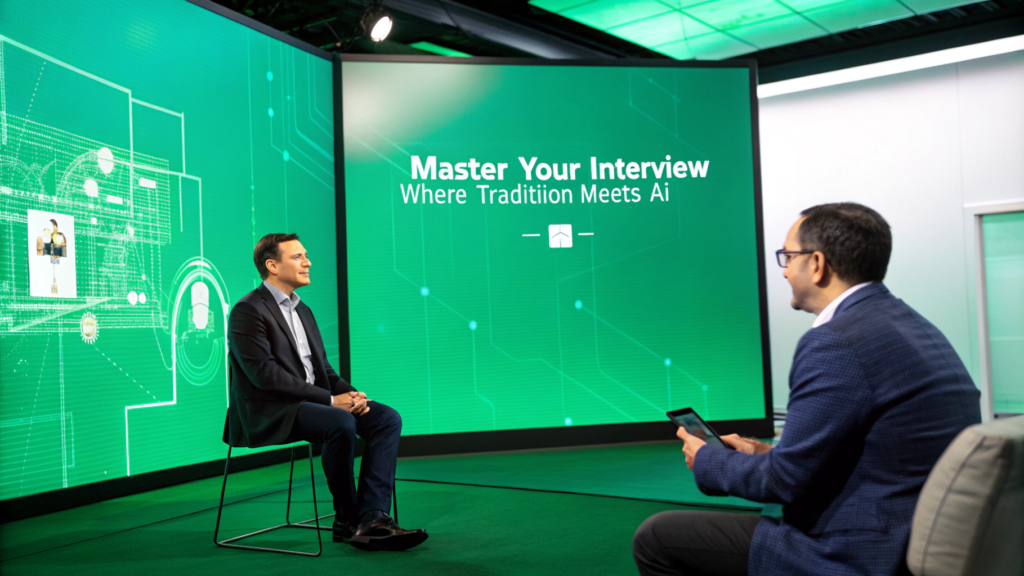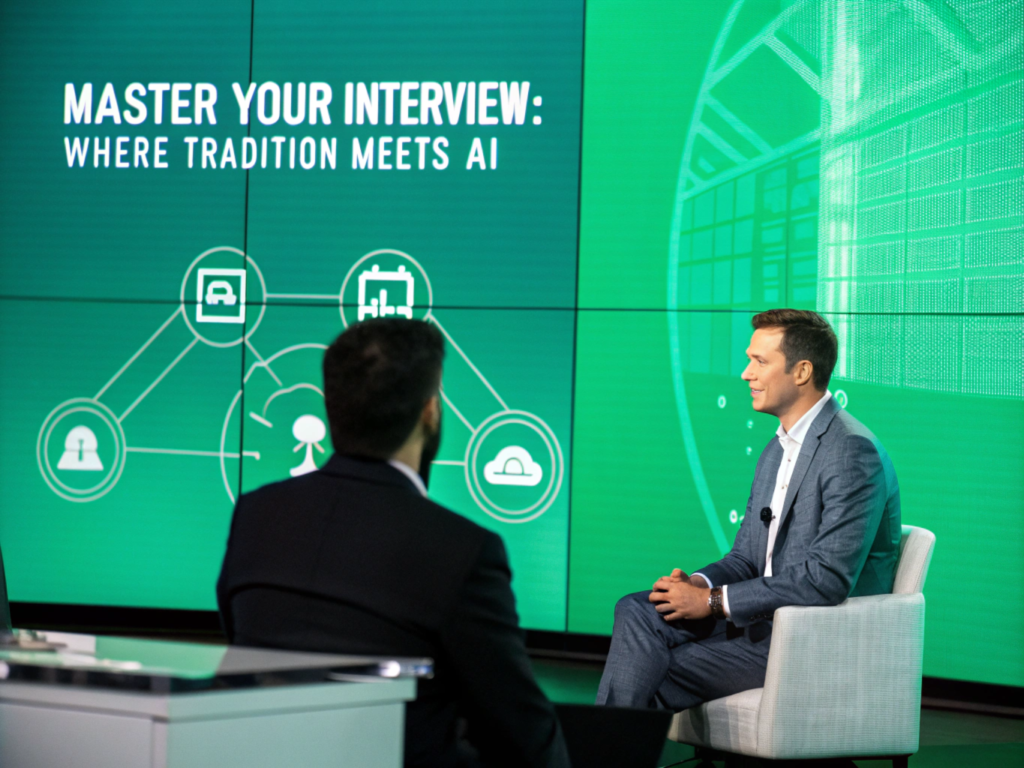Summary – In today’s hyper-competitive job market, 82% of candidates are underprepared for critical interview moments, according to McKinsey Global Institute research. While traditional interview preparation remains foundational, three key shifts are reshaping success rates: 1) the integration of AI-powered tools for interview simulation and feedback, 2) the rising importance of demonstrating digital literacy during interviews, and 3) the emergence of hybrid interview formats. Deloitte’s Human Capital Trends report indicates that organizations using structured behavioral interviewing techniques see a 74% better quality of hire. As AI reshapes recruitment processes, LinkedIn’s Global Talent Trends report shows that 67% of hiring managers now use AI-assisted tools to screen candidates before live interviews, making strategic preparation more crucial than ever.
The landscape of job interviewing has fundamentally changed. Boston Consulting Group’s Future of Work research reveals that 91% of companies have adopted hybrid or remote interview processes, transforming how candidates need to prepare and present themselves. This shift, coupled with the World Economic Forum’s finding that 50% of all employees will need significant reskilling by 2025, has created new imperatives for interview success.
For many professionals, these common signs indicate the need for a modern interview strategy:
- Receiving consistent feedback about “lacking specific examples” in behavioral interviews
- Struggling to articulate achievements in the STAR format (Situation, Task, Action, Result)
- Finding it difficult to prepare relevant questions for different interview stages
- Feeling overwhelmed by the need to demonstrate both technical and soft skills
According to Gartner’s Strategic Technology Trends report, AI-powered interview preparation tools are becoming standard practice, with 76% of successful candidates utilizing them for at least one aspect of their preparation.
Master the “Tell Me About Yourself” Framework
The opening moments of any interview are crucial. PwC’s Workforce of the Future report indicates that 83% of hiring decisions are influenced by the first five minutes of interaction. Adam Grant, organizational psychologist at Wharton, emphasizes that “Your story should be a strategic narrative that connects your past experiences to the role’s requirements.”
Consider these proven approaches:
- Structure your response using the Present-Past-Future framework
- Incorporate relevant keywords from the job description
- Practice your delivery using AI-powered feedback tools
- Tailor your story for different interview stages
Reflection Question: How effectively does your current introduction align with the role’s key requirements?
Leverage the STAR Method for Behavioral Excellence
MIT Sloan Management Review’s analysis of successful interviews reveals that candidates who systematically use the STAR method are 63% more likely to receive job offers. This structured approach to answering behavioral interview questions has become even more critical as organizations increasingly rely on predictive hiring algorithms.
Key implementation strategies:
- Prepare diverse examples covering leadership, conflict resolution, and innovation
- Use quantifiable results whenever possible
- Practice with both traditional and AI-powered interview simulation tools
- Adapt your responses for different seniority levels
Strategic Questions That Demonstrate Value
INSEAD Knowledge research shows that candidates who ask thoughtful, researched questions are 2.6 times more likely to receive offers. Herminia Ibarra, Professor of Organizational Behavior at London Business School, notes: “The questions you ask reveal your strategic thinking and cultural fit.”
- Receiving consistent feedback about “lacking specific examples” in behavioral interviews
- Struggling to articulate achievements in the STAR format (Situation, Task, Action, Result)
- Finding it difficult to prepare relevant questions for different interview stages
- Feeling overwhelmed by the need to demonstrate both technical and soft skills
According to Gartner’s Strategic Technology Trends report, AI-powered interview preparation tools are becoming standard practice, with 76% of successful candidates utilizing them for at least one aspect of their preparation.
Master the “Tell Me About Yourself” Framework
The opening moments of any interview are crucial. PwC’s Workforce of the Future report indicates that 83% of hiring decisions are influenced by the first five minutes of interaction. Adam Grant, organizational psychologist at Wharton, emphasizes that “Your story should be a strategic narrative that connects your past experiences to the role’s requirements.”
Consider these proven approaches:
- Structure your response using the Present-Past-Future framework
- Incorporate relevant keywords from the job description
- Practice your delivery using AI-powered feedback tools
- Tailor your story for different interview stages
Reflection Question: How effectively does your current introduction align with the role’s key requirements?
Leverage the STAR Method for Behavioral Excellence
MIT Sloan Management Review’s analysis of successful interviews reveals that candidates who systematically use the STAR method are 63% more likely to receive job offers. This structured approach to answering behavioral interview questions has become even more critical as organizations increasingly rely on predictive hiring algorithms.
Key implementation strategies:
- Prepare diverse examples covering leadership, conflict resolution, and innovation
- Use quantifiable results whenever possible
- Practice with both traditional and AI-powered interview simulation tools
- Adapt your responses for different seniority levels
Strategic Questions That Demonstrate Value
INSEAD Knowledge research shows that candidates who ask thoughtful, researched questions are 2.6 times more likely to receive offers. Herminia Ibarra, Professor of Organizational Behavior at London Business School, notes: “The questions you ask reveal your strategic thinking and cultural fit.”
Prepare questions that:
- Demonstrate industry knowledge
- Explore growth opportunities
- Address digital transformation initiatives
- Show alignment with company values
Building Digital Presence for Interview Success
Korn Ferry’s Future of Work research indicates that 92% of recruiters review candidates’ digital presence before interviews. Modern professionals are increasingly using AI-powered tools to optimize their LinkedIn profiles and ensure consistency across their digital footprint.
Implementation strategies:
- Audit your online presence
- Align your digital narrative with your interview messaging
- Showcase relevant thought leadership
- Utilize professional profile optimization services
Moving Forward: The Hybrid Interview Landscape
The Josh Bersin Academy’s latest research reveals that 78% of companies plan to maintain hybrid interviewing processes. Success in this environment requires a dual focus on traditional interview skills and digital presence optimization.
Action items:
- Practice video interview techniques
- Master virtual presentation skills
- Prepare technology backup plans
- Develop comfort with digital whiteboarding tools
The Society for Human Resource Management (SHRM) reports that candidates who demonstrate both strong traditional interview skills and digital fluency are 85% more likely to advance in modern hiring processes. As you prepare for your next interview, consider how AI-powered tools can enhance your preparation while maintaining authenticity in your responses.
Remember, interview success in today’s landscape requires a strategic blend of timeless principles and modern tools. The most successful candidates are those who can demonstrate both their human qualities and their comfort with digital transformation.










Comments (0)
No comments yet. Be the first to leave a comment!